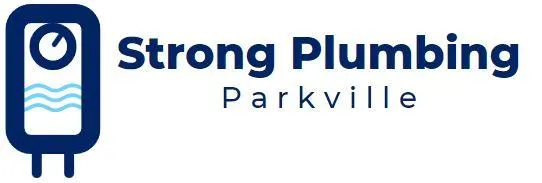Types of Water Heaters: Which One is Best
for Your Parkville-Area Home?
Selecting the perfect water heater can feel like a daunting task due to the wide array of options on the market. Traditional tanks, solar units, and tankless models are just a few examples, each boasting varying levels of energy efficiency and hot water capacity. To ensure you make a well-informed decision that caters to your family's requirements, our detailed guide offers a comprehensive review of each water heater type. By delving deeper into the content, you'll gain the knowledge necessary to make the optimal selection. Remember to carefully weigh the distinctive pros and cons associated with each type before reaching a final decision.

Traditional Storage Tank Water Heaters
Tank-style water heaters are a popular choice for efficiently heating and storing water in insulated tanks. They utilize various energy sources such as gas, electric, or oil to heat the water. These units ensure a constant supply of hot water, providing convenience at your fingertips with a simple turn of the tap.
Pros:
One of the key advantages of tank-style water heaters is their affordability. Compared to other types of water heaters, they have a lower upfront cost, making them a cost-effective option.
These water heaters often come with longer warranty periods, giving you added protection and peace of mind.
Maintaining tank-style water heaters is relatively easy. The maintenance procedures are typically straightforward and don't require complex steps or specialized knowledge.
Cons:
One major downside is their high operating expenses. Due to their lower energy efficiency, these water heaters can result in higher operating costs over time, leading to increased expenses.
Another limitation of tank-style water heaters is their limited capacity. The size of the tank determines the amount of hot water available, which means there might be a shortage during peak usage periods. This can be inconvenient, especially for larger households or situations where simultaneous hot water demand is high.
Finally, there is a risk of water damage associated with tank-style water heaters. If the tank develops a leak or fails, it can potentially cause significant damage to the surrounding area. It's important to stay vigilant and monitor the condition of the tank to minimize the risk of such incidents.

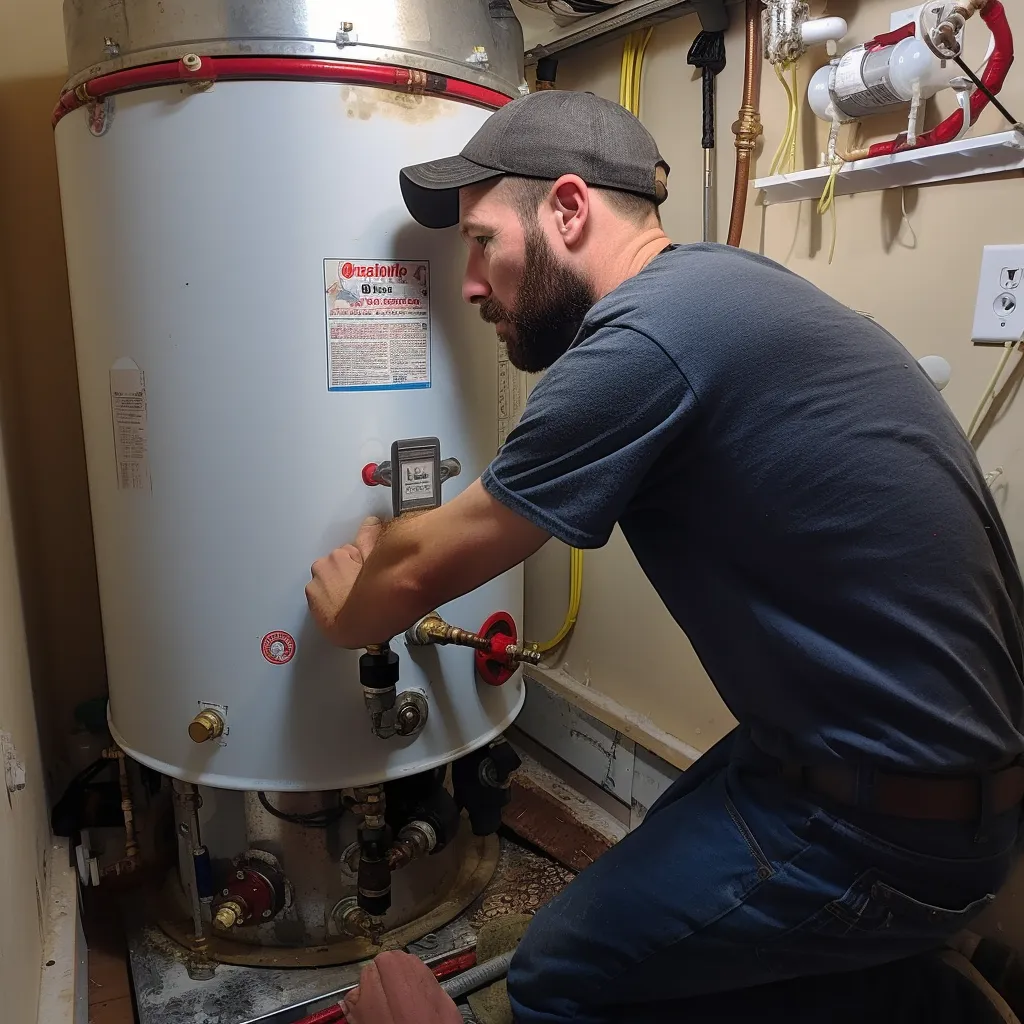
Tankless Water Heaters
Tankless water heaters are a modern and efficient alternative to traditional water heaters, offering several advantages. Unlike tank-style models, which continuously store and heat water, tankless units heat water on demand. This not only saves energy but also frees up valuable space in your home. While the upfront cost of a tankless water heater may be higher, the long-term savings on utility bills more than make up for it. Additionally, these water heaters provide a more eco-friendly and cost-effective solution for meeting your hot water needs.
Pros:
One of the major benefits of tankless water heaters is their easy installation. Thanks to their compact design, installing them is a straightforward process. This convenience saves you time and effort during setup.
Tankless water heaters are highly energy efficient. Their energy-saving capabilities ensure consistently low monthly bills. By only heating water when needed, these units minimize energy waste and reduce your overall utility expenses.
With a tankless water heater, you can enjoy a continuous supply of hot water. As long as there is demand, you won't run out of hot water. This is particularly advantageous for households with multiple occupants or high water usage.
Another significant advantage is the longer lifespan of tankless water heaters. These units have a higher life expectancy compared to traditional water heaters, making them a smart and economical investment in the long run. You can enjoy the benefits of a reliable hot water supply for an extended period before needing a replacement.
Cons:
The initial cost of tankless water heaters is higher than that of traditional water heaters. Although this may require a larger upfront investment, the energy savings over time can offset this cost difference.
Venting complexities may arise when installing tankless water heaters in small spaces. Proper venting is crucial to ensure safe operation and efficient performance. It's essential to plan for appropriate venting solutions to accommodate the specific requirements of your space.
Tankless water heaters have a limited capacity for high-demand applications. If you have simultaneous high water usage needs, such as running multiple showers or appliances at once, a tankless unit may struggle to keep up with the demand. It's important to assess your household's hot water needs and choose a tankless model that can handle the expected usage.
Heat Pump Water Heaters
Heat pump water heaters are renowned for their exceptional efficiency and affordability when it comes to heating water. By extracting heat from the air using a small compressor, they offer a highly energy-efficient alternative. What's impressive is their ability to provide ample hot water without consuming a substantial amount of energy, leading to significant cost savings. Moreover, heat pump water heaters function reliably even during power outages as they operate without electricity. Experience the advantages of efficient and economical hot water with a heat pump water heater.
Pros:
Energy Efficiency: Heat pump water heaters excel in energy efficiency, resulting in reduced utility bills compared to traditional water heaters.
Utilization of Renewable Energy: These water heaters harness renewable energy from the air, making them a sustainable and environmentally friendly choice.
Continuous Hot Water during Power Outages: Heat pump water heaters ensure a continuous supply of hot water even when facing power outages.
Cons:
Higher Initial Cost: Heat pump water heaters generally require a higher upfront investment compared to traditional water heaters.
Ventilation and Space Requirements: Installing heat pump water heaters may necessitate additional ventilation and space considerations.
Limited Capacity: Heat pump water heaters may have a restricted capacity, leading to a lower availability of hot water per usage.

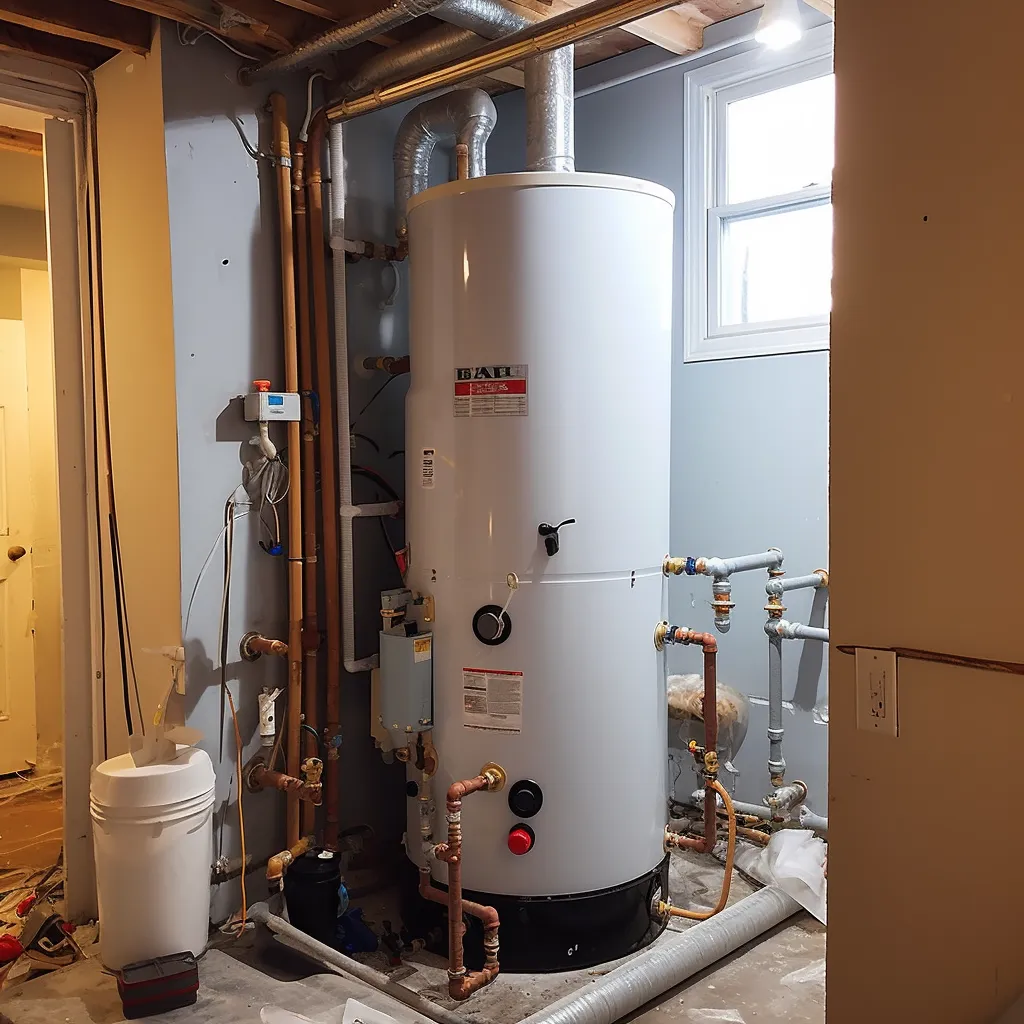
Heat Pump Hybrid Water Heaters
Heat pump hybrid water heaters offer the perfect blend of advantages found in conventional storage tank water heaters and heat pump systems. By combining the best features of both, these units deliver exceptional efficiency and lower operational expenses when compared to traditional models. Although they may necessitate a larger upfront investment, their outstanding performance and functionality make them a highly worthwhile option.
Pros:
Enhanced Energy Efficiency: Heat pump hybrids excel in energy efficiency, resulting in substantial reductions in utility bills over time.
Sustainable Renewable Energy: These water heaters harness renewable energy sources, contributing to a greener and more sustainable environment.
Uninterrupted Hot Water: Even during power outages, heat pump hybrid water heaters ensure a constant supply of hot water, providing peace of mind and convenience.
Extended Lifespan: With a longer lifespan when compared to traditional storage tank heaters, heat pump hybrids offer prolonged durability and reliability.
Cons:
Higher Initial Cost: The initial cost of heat pump hybrid water heaters tends to be higher than that of conventional storage water heaters. However, the long-term savings in energy bills often offset this initial investment.
Installation Challenges: Installing heat pump hybrids may pose challenges due to ventilation and space requirements. Adequate space and proper ventilation must be ensured during the installation process.
Limited Capacity: Heat pump hybrids have a finite amount of hot water available for each use. This limitation may require careful consideration and planning to ensure sufficient hot water supply for larger households or high-demand scenarios.
Potential Water Damage: Like any water heater, there is a risk of water damage if the tank of a heat pump hybrid fails or develops leaks. Regular maintenance and inspection are necessary to prevent such issues and mitigate any potential damage.
Solar Powered Water Heaters
Solar-powered water heaters present a fantastic opportunity to decrease your monthly utility expenses and take advantage of renewable energy. There are two primary types available: active and passive systems. These systems utilize the sun's energy to warm stored water, providing a simple and economical way to save money. By choosing a solar-powered water heater, you can experience the advantages of reduced energy costs while adopting a more sustainable and environmentally conscious approach to water heating.
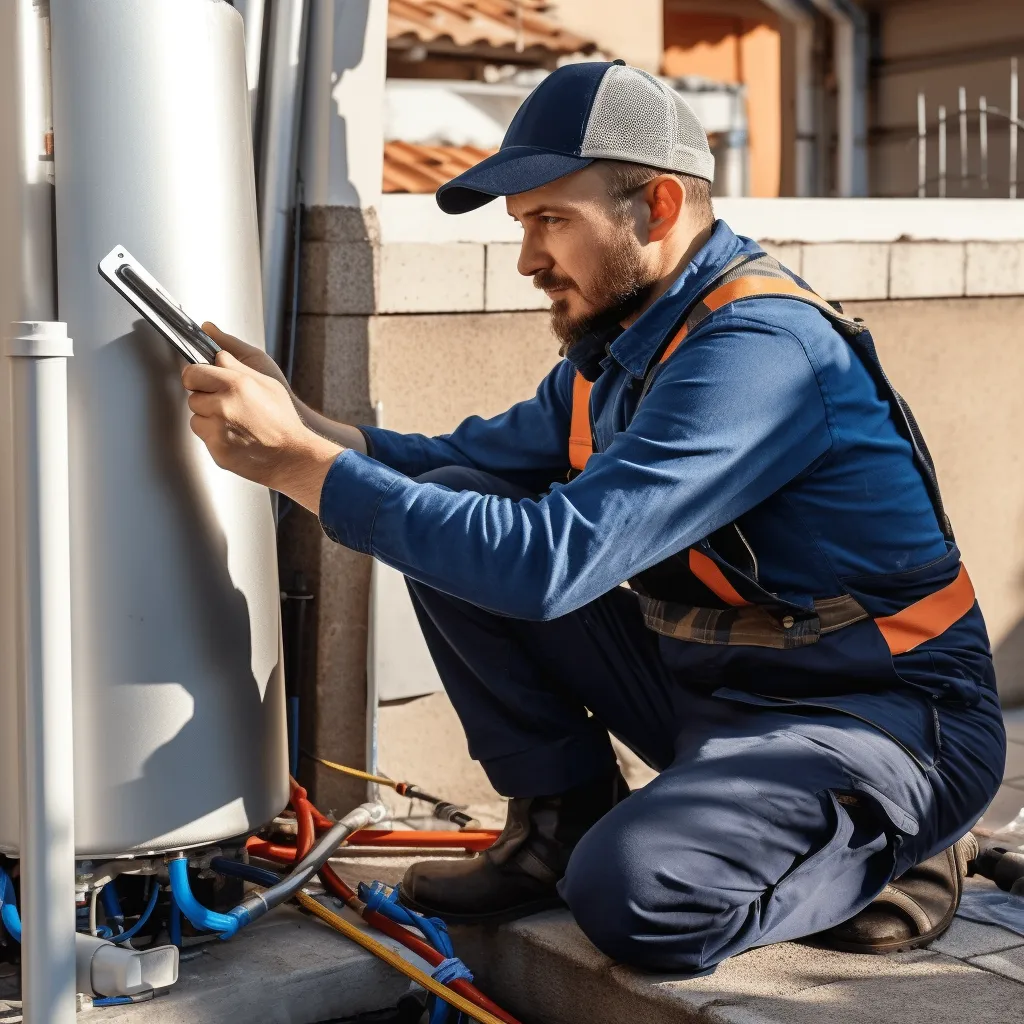
Active Systems:
Active solar-powered water heaters are highly efficient and effective in generating abundant hot water. They operate by utilizing pumps that transfer hot fluid from the collectors to a storage tank, ensuring a steady supply of heated water for future use. These systems optimize the collection of solar energy, allowing you to enjoy a continuous and ample hot water supply to meet the needs of your household. With their reliable performance, active solar-powered water heaters are an excellent choice for harnessing solar energy and maximizing efficiency in heating water.
Passive Systems:
Passive solar water heaters utilize solar power to heat water by relying on natural convection to transfer heated fluid from the collectors to a storage tank. With their affordable installation and minimal maintenance requirements, these systems offer a cost-effective and eco-friendly solution for meeting your hot water requirements. While they may not generate as much hot water as active systems, passive solar water heaters are an excellent choice for harnessing solar energy efficiently.
Pros:
Enhanced efficiency leads to significant savings on energy bills.
Utilizes renewable energy from the sun, reducing dependence on non-renewable resources.
Longer lifespan compared to traditional water heaters.
Cons:
Higher initial cost compared to traditional storage tank heaters.
Installation may require additional space and equipment, adding complexity.
Potential risk of water damage if solar panels become faulty or damaged.

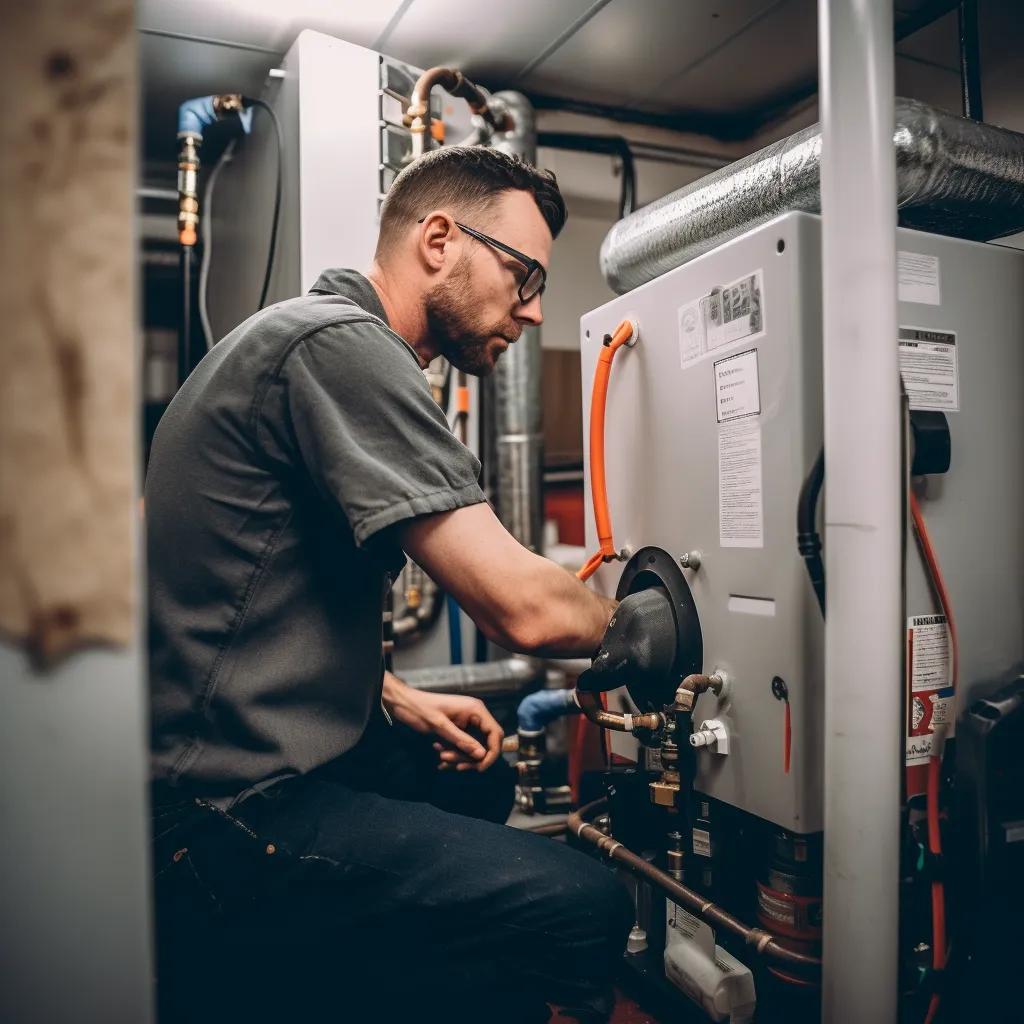
Point-of-Use Water Heaters
Point-of-use water heaters offer a convenient solution for instant hot water in a compact and efficient system. Ideal for small spaces or those looking for an alternative to traditional storage tanks, these heaters eliminate the drawbacks associated with long pipe runs and heat loss. With their on-demand hot water delivery, point-of-use water heaters provide numerous benefits.
Pros:
One major advantage is their high energy efficiency, which translates into lower monthly utility expenses. By directly heating water at the point of use, these heaters minimize energy waste, ensuring that only the necessary amount of hot water is produced, thereby reducing costs.
Point-of-use water heaters are known for their compact size, making installation and maintenance hassle-free, even in limited spaces. Their small footprint allows for flexible placement options, accommodating various locations within a home or business.
These heaters boast a longer lifespan when compared to storage tank heaters. Their durable construction and efficient design contribute to their longevity, offering peace of mind and long-term cost savings.
Cons:
Point-of-use water heaters generally have a higher initial cost, and additional ventilation and installation space may be required. While the upfront investment may be higher, the long-term energy savings and overall convenience often outweigh this initial expense.
Another potential limitation is their lower hot water capacity, resulting in limited availability per use. Multiple units may be needed in larger properties or areas with high hot water demand to ensure an adequate supply. This consideration is crucial for households or businesses with frequent simultaneous hot water requirements.
Point-of-use water heaters carry a higher risk of water damage compared to tankless heaters due to the possibility of tank failure or leaks. Regular maintenance and inspection are recommended to mitigate this risk and ensure optimal performance.
Water Heaters With Hydronic Boilers
Hydronic boilers offer an energy-efficient solution for heating your space by utilizing water instead of air. By circulating heat through the water, they ensure optimal warmth in colder climates while also providing hot water for domestic use. These boilers can be paired with tank water heaters, offering a cost-effective solution for meeting your hot water needs.
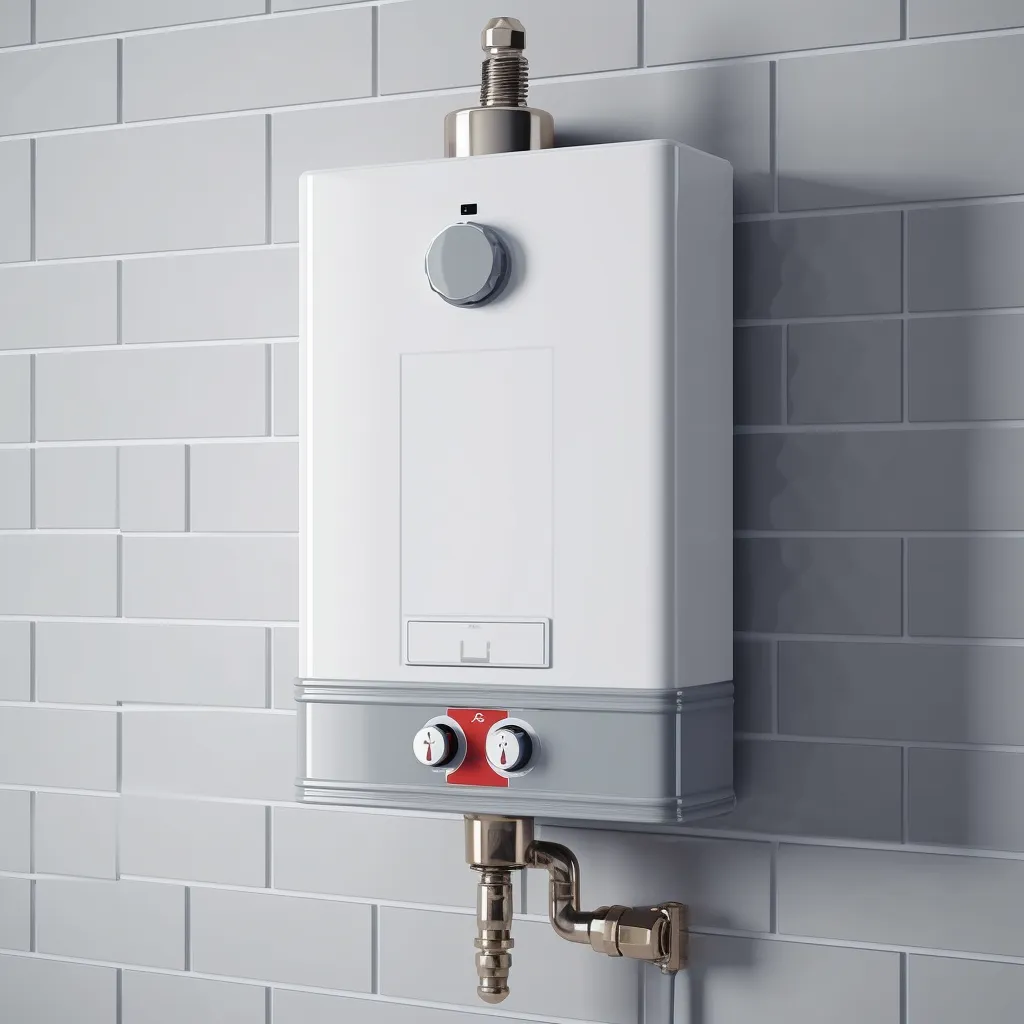
Pros:
High efficiency, which can lead to reduced monthly utility bills.
They offer the convenience of providing both space heating and hot water, making them a versatile choice.
With their compact design, they are suitable for installation in tight spaces where other systems may not fit.
Hydronic boilers tend to have a longer life expectancy compared to traditional tank water heaters.
Cons:
Hydronic boilers generally have a higher initial cost when compared to traditional storage models.
Their capacity for producing hot water is limited, which means there might be a lower supply of hot water per use.
Another aspect to be aware of is the possibility of noise generation during their operation.
Depending on your location and utility provider, certain utility rebates or incentives may not be available for hydronic boilers.
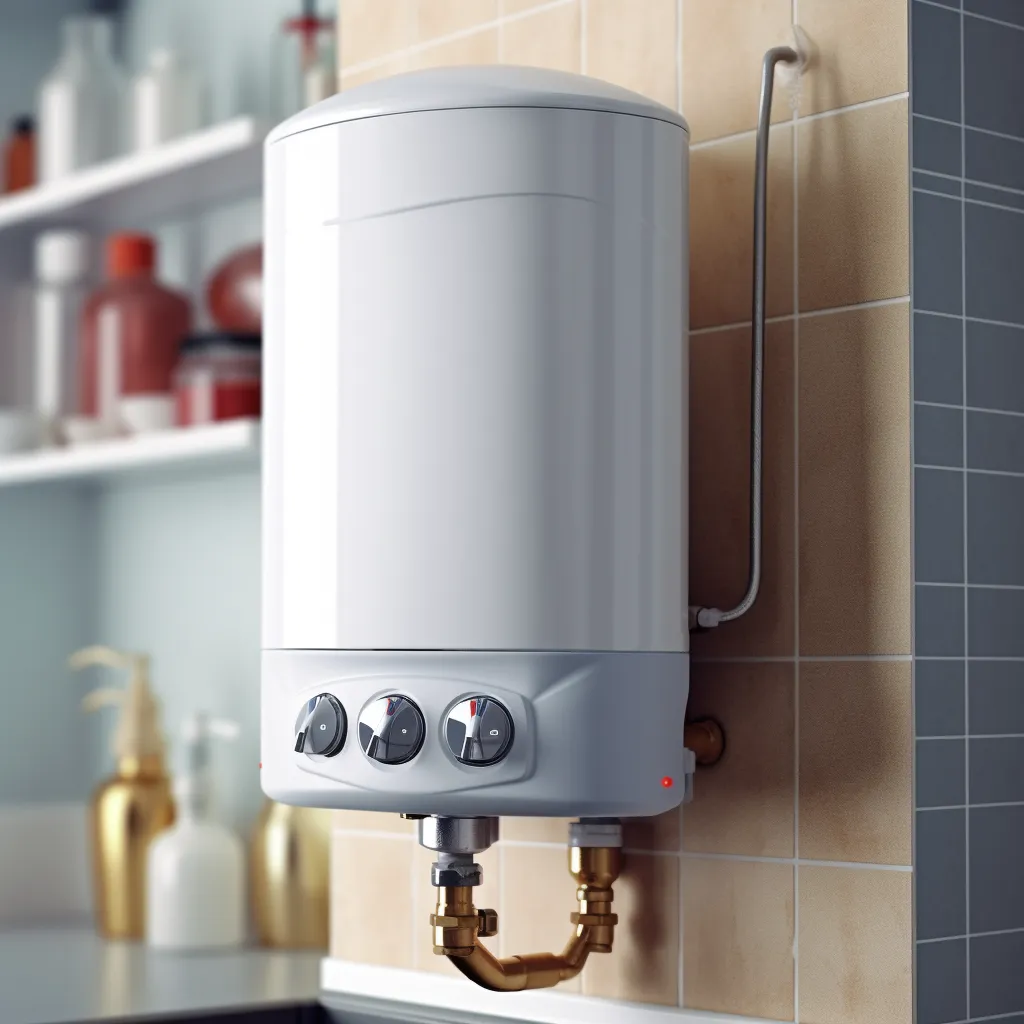
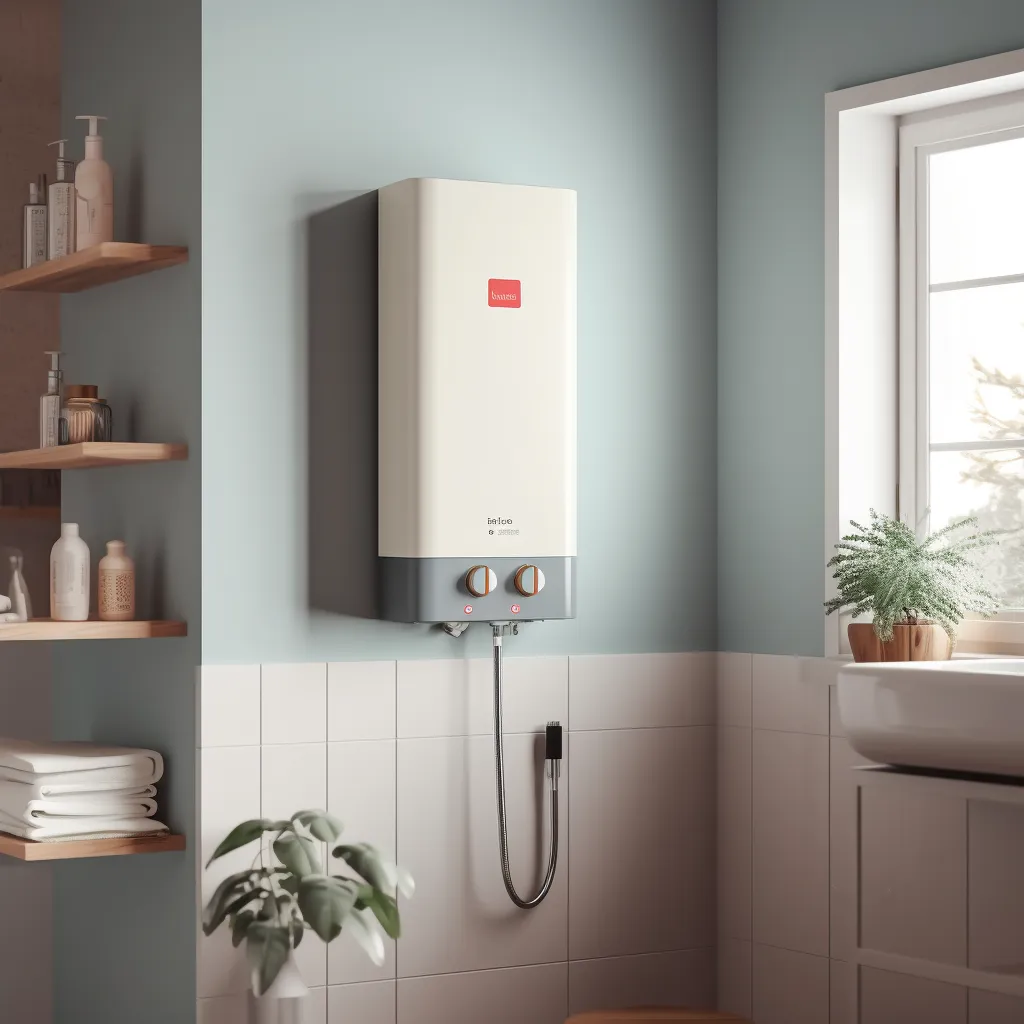
Smart Water Heaters
Upgrade your water heating system with smart water heaters, the latest technology designed to optimize hot water production. By utilizing Wi-Fi enabled thermostats, you can effortlessly manage your hot water consumption and control expenses from anywhere. Through your smartphone, take charge of temperature settings and personalize them to suit your preferences.
Pros:
Benefiting from remote control via Wi-Fi enabled thermostats, these smart water heaters offer convenient management, enabling you to effortlessly control your water heater through smartphones or other devices.
Energy-saving modes, including the vacation mode, contribute to reducing your monthly energy bills while ensuring optimal performance.
The compact size of smart water heaters makes installation and maintenance a breeze, even in confined spaces, providing you with flexibility and convenience.
Compared to traditional storage tank heaters, smart water heaters boast a longer life expectancy, allowing for prolonged usage and reliability.
Cons:
The initial cost of smart water heaters is higher compared to traditional storage water heaters. However, the long-term energy savings can offset this cost over time.
Keep in mind that some utility rebates or incentives may not apply to smart water heaters, and it's advisable to check with your local utility provider for specific details.
To ensure compatibility with newer devices, additional software updates may be necessary. This ensures that your smart water heater continues to function optimally and provides the latest features.
While utilizing a Wi-Fi connection offers convenience, it's important to prioritize security to mitigate potential risks. Ensuring a secure Wi-Fi connection is essential to safeguard your smart water heater and maintain privacy.

Condensing Water Heaters
Condensing water heaters combine the advantages of tankless and storage tank water heaters, optimizing both efficiency and cost-effectiveness. They employ cutting-edge technology to extract heat from exhaust gases, maximizing efficiency and delivering savings. This innovative approach not only enhances performance but also improves energy efficiency by utilizing otherwise wasted heat.
Pros:
Enhanced Energy Efficiency: Condensing water heaters offer high energy efficiency, resulting in reduced utility bills.
Extended Lifespan: Compared to traditional tank water heaters, condensing models have a longer lifespan, offering prolonged usage and durability.
Uninterrupted Hot Water Supply: Even during power outages, condensing water heaters ensure hot water availability, providing convenience and comfort.
Cons:
Higher Initial Cost: The upfront cost of condensing water heaters is typically higher than that of traditional models, which may require a larger initial investment.
Space and Ventilation Requirements: Condensing water heaters may have specific space and ventilation requirements, needing adequate room and proper ventilation for safe operation.
Limited Hot Water Capacity: Depending on the specific model, condensing water heaters may have a limited hot water capacity, potentially affecting larger households or heavy hot water usage scenarios.
Water Damage Risk: In the event of tank failure or leakage, there is a potential risk of water damage, which should be taken into account and addressed with proper preventive measures.
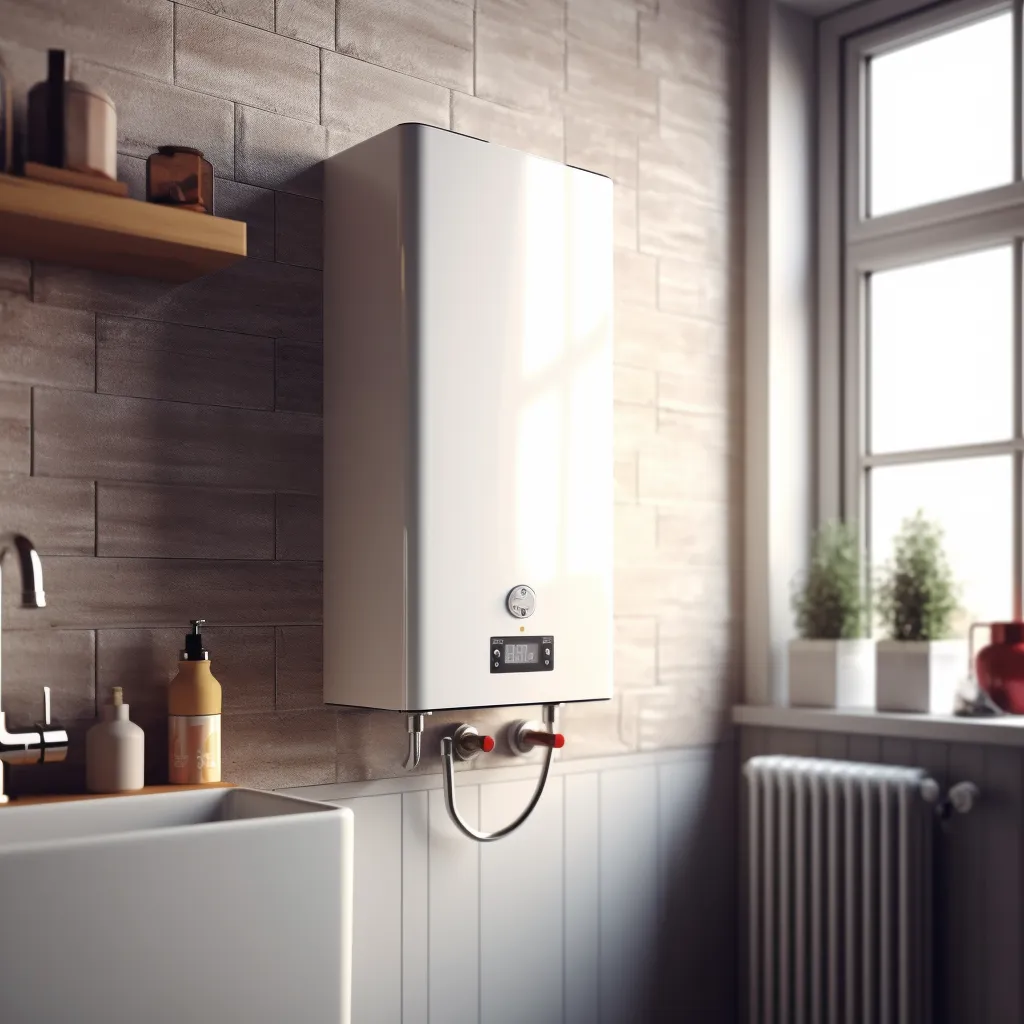
How to choose the right
water heater for your home
Choosing the right size of a water heater is crucial for ensuring adequate hot water supply and optimizing efficiency. An undersized water heater can lead to a shortage of hot water, causing inconvenience, especially for larger families. On the other hand, an oversized water heater can be wasteful, consuming unnecessary energy and occupying valuable space in your home. To determine the ideal water heater size that suits your family's needs, it's essential to consider your lifestyle and daily hot water usage. Assessing factors such as the number of family members, their bathing habits, and any additional hot water requirements will help you make an informed decision. By carefully selecting the appropriate water heater size, you can achieve a balance between affordability, comfort, and functionality. This ensures that you have a sufficient supply of hot water tailored to meet your specific requirements, providing a comfortable and enjoyable experience while avoiding unnecessary expenses and space constraints.
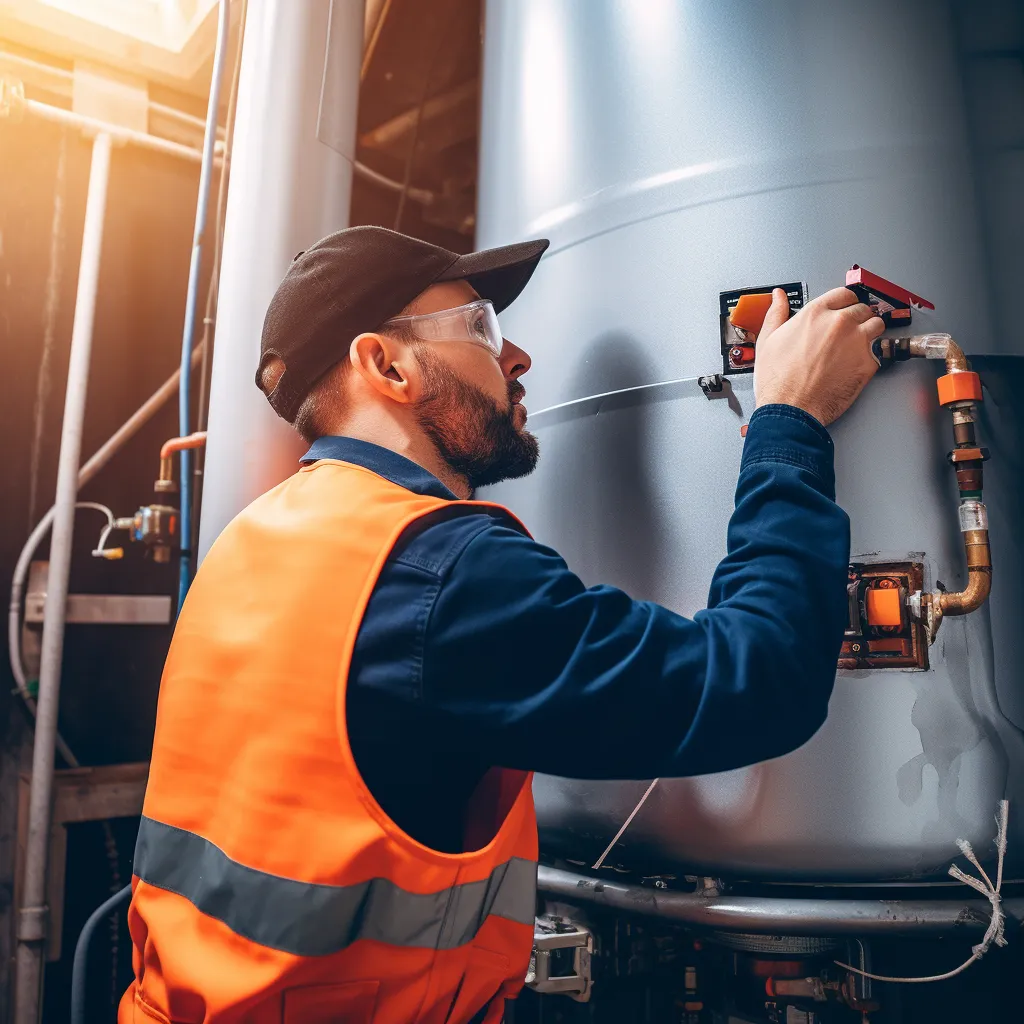
When should you
replace your water heater?
Having a properly functioning water heater is essential to ensure the smooth operation of your home's plumbing system and to meet your daily hot water needs for tasks like showering, dishwashing, and laundry. Typically, water heaters last for approximately 10-15 years. If your water heater has already reached or surpassed this lifespan, it is advisable to start thinking about investing in a replacement. Upgrading to a newer water heater model guarantees a dependable supply of hot water and can prevent potential problems and expensive repairs that often arise with older units.
If you notice any of the following signs, it may be an indication that it's time to replace your water heater:
Tank leakage: If you observe any leaks or puddles around your water heater tank, it's a clear sign that there's a problem. Water leakage can cause damage to your property and indicates a potential failure in your water heater system.
Strange noises: Unusual noises coming from your water heater, such as rumbling, popping, or banging sounds, may indicate sediment buildup or other internal issues. These noises can be a sign that your water heater is aging and may need to be replaced.
Discolored and rusty hot water: If your hot water appears discolored, cloudy, or has a rusty tinge, it could be a sign of corrosion inside your water heater tank. Rusty water can affect the quality of your water supply and is an indication that your water heater is deteriorating.
Lack of hot water: If you're experiencing a consistent lack of hot water or your hot water supply runs out quickly, it could be a sign that your water heater is no longer functioning efficiently. This problem could be due to a worn-out heating element or other internal issues, which may require a replacement.
Fluctuations in water temperature: Inconsistent water temperatures, where your hot water suddenly becomes too hot or cold, can be a sign of a failing water heater. Fluctuations in temperature may indicate a malfunctioning thermostat or other internal problems, suggesting that it's time for a new water heater.
High energy bills: If you've noticed a significant increase in your energy bills without any other explanation, it's worth considering your water heater as a potential culprit. An inefficient or aging water heater can consume more energy to heat water, resulting in higher utility costs.
While the cost of installing a new water heater can be significant, the long-term benefits of improved energy efficiency and reliable performance make it a worthwhile investment. A licensed plumber can evaluate your specific needs, recommend the right type and size of water heater, and ensure proper installation for optimal efficiency and longevity.
Maintenance tips for
water heater efficiency
To ensure optimal performance and cost-effective hot water, it is crucial to regularly maintain your water heater. Simple maintenance routines can go a long way in preventing problems and maximizing efficiency. With consistent upkeep, your water heater will continue to operate smoothly, providing you with reliable access to affordable hot water.
Benefits of hiring a licensed plumber
to replace your water heater
When contemplating the replacement of your water heater, it might be alluring to undertake the task on your own. However, it is crucial to consider the numerous advantages of hiring a professional plumber:
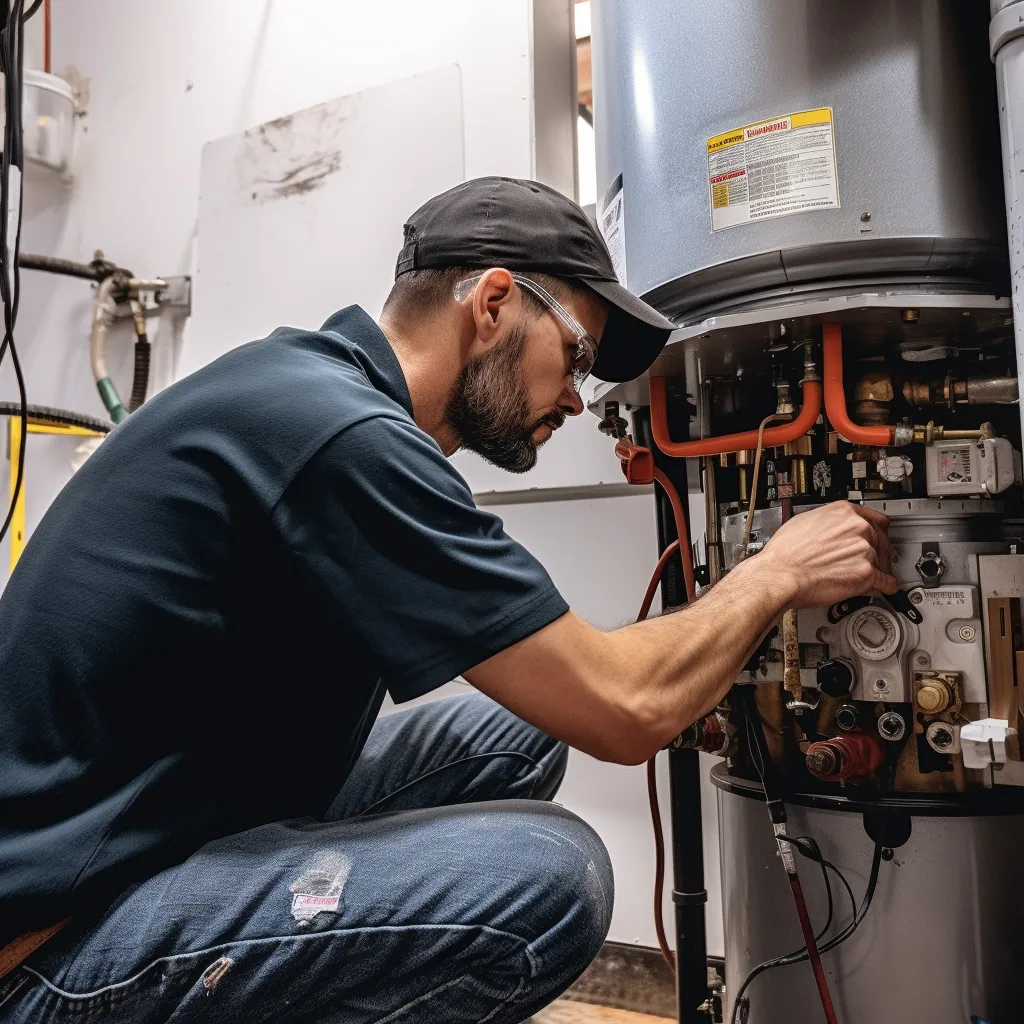
Professionals possess the essential training and knowledge required to install a new water heater with utmost safety and efficiency. They are well-equipped to offer expert advice on the ideal type and size of water heater that suits your specific needs.
Licensed plumbers ensure that your water heater installation adheres to local building codes and safety standards. By entrusting the job to a professional, you can rest assured that your installation will meet all the necessary requirements.
Professionals are adept at swiftly identifying and resolving any issues that may arise during the installation process. Their expertise ensures a seamless and hassle-free installation, saving you time and effort.
Plumbers have access to the necessary tools and equipment required to carry out the installation effectively. By relying on their expertise and resources, you can have peace of mind knowing that the installation will be executed with precision.
When it comes to water heater replacement, hiring a licensed plumber can bring a host of advantages, such as time and cost savings, as well as prevention of potential problems.
Contact Us
GET IN FULL TOUCH
PHONE: (410) 883-5584
EMAIL:
william@waterheaterparkville.com
Strong Plumbing Parkville
Parkville, MD 21234
